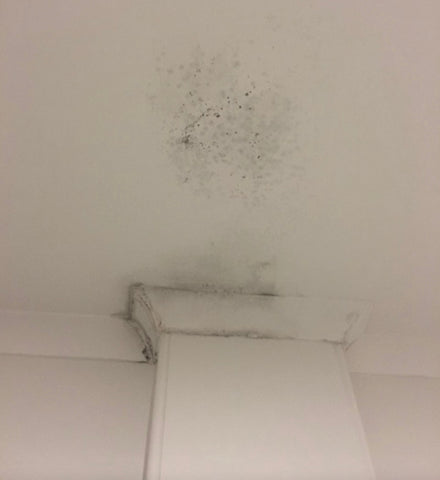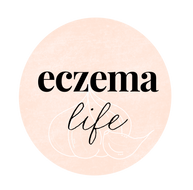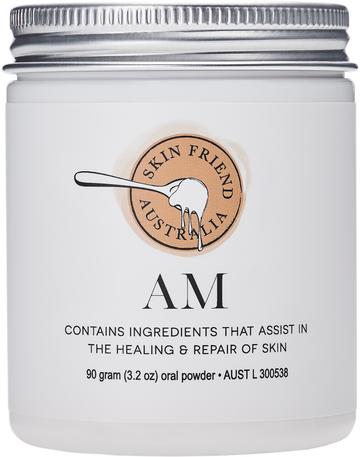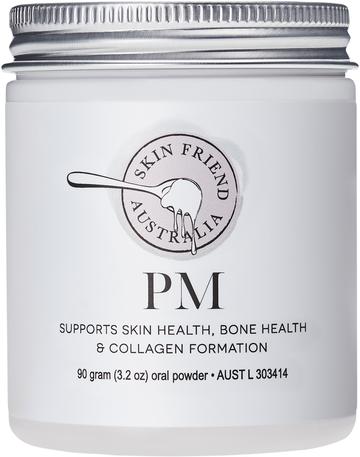Five Hidden Eczema Triggers {and why fermented foods could be making you itchy}

Having eczema is a bit like sitting on top of an ant’s nest—at times your skin can literally crawl with itchiness and it won’t go away. Now if that’s you, you could stay sitting there on top of the 'ant’s nest', and keep on applying the same creams and lotions, but consider this …
You can’t get well in the same environment you got sick in.
So have you checked your environment lately? You might be sitting on top of an 'ant's nest' and not even realise it.
Environmental Triggers
Approximately 25% of the population (in the US) are more sensitive to their environment than regular folks. And if you are one of those 25%, you are at increased risk of having allergies and intolerances to environmental factors such as mould, grasses, pollen and dust mites to name a few.
So if you have eczema, you can benefit from checking (or perhaps testing) your external environment to see if you are living in a potentially toxic home, or if you have allergies to dust mites, pets, cockroaches, pollen or grasses. Some often overlooked, yet important, environmental triggers are …
Here are five common eczema triggers you need to know (in order to get better)
1. Mould (mold)
Allergic reactions to mould often affect the respiratory system and include nasal congestion and itching, sneezing, coughing and difficulty breathing. Exposure to mould can also aggravate asthma and trigger eczema flare-ups, or other skin rashes. Mould allergies are common in people with other predisposed allergies.

There has been multiple studies that show relationships between mould exposure and eczema and other allergic reactions, especially in children, a review of which can be found here.
Mould can be found anywhere that experiences dampness. Common places for mould growth include walls, bathroom, carpets (especially carpets!), fabric furniture, rubbish bins, in your car air-conditioner and humidifiers.
- AVOID using a humidifier - it is not a safe eczema treatment due to mould risk
- Air-conditioning units are a breeding ground for mould and dust
- It is important to check for physical signs of mould in the house such as physical mould on the walls or roof, musty smells or water leaks
- Order a mould testing kit or get a mould expert to come and do mould testing in your home
- Hot and humid homes are breeding grounds for mould and dust mites, so a dehumidifier may be useful such as these ones.
- HEPA air filters are top of the line air filters that work in the home to trap up to 99.97% of allergens, pollen, smoke, dust, mould and bacteria, and therefore are a great investment for people with eczema or other allergies, like this one here.
2. Dust Mites
Dust mites are tiny bugs that often live in house dust, and allergic reactions often include sneezing, runny nose, asthma, swollen and itchy eyes, postnasal drip and eczema. If you have a history of other allergies or sensitivities, or someone in your family does, you are more likely to also be allergic to dust mites. A simple Skin Prick Test can reveal dust mite allergy. Ask your doctor for a referral to an allergy specialist for this test.
Dust Mite Tips:
- Dust mites live in mattresses so buy a Dust Mite Mattress Protector—one that completely covers your mattress and is sealed by a zip. When using one of these, you want to ensure that it is zipped up all the way around.
- Dust mites love carpet and flooring, so have a quick shower before bed to rinse any potential dust mites off your body, and get a pair of new thongs (flip flops) to wear from the shower to your bed, especially if you have carpet in the house. This is helpful for people with severe eczema and allergies to dust mites.
- Use a HEPA vacuum when cleaning your home, such as the one found here. Regular vacuums spray dust mites and mould spores out the back of the filter with warm air, whereas HEPA vacuums have a finer filter, trapping the mould and dust in the bag so they’re not sent back into your home. If you are a sensitive person, it will be the best purchase you ever make!
- HEPA air filters are also beneficial for people with dust mite allergies
- Super soft cotton sheets are also beneficial, and should be washed at least once a week, even twice a week if your skin flakes throughout the night
3. Stress
Stress is one of the major triggers for eczema but it’s not the only trigger—it’s usually ‘the final straw that broke the camel’s back’.
What I mean is, there are many factors not just stress. But if you are in a highly stressful job, a bad relationship, an unsafe house or neighbourhood, or any situation that may be making you continually anxious or stressed, it make sense to try to change your situation.
We know it usually isn’t as easy as quitting your job and going on a relaxing holiday (that's not always realistic!), so if a major life change is not within reach (yet), you can incorporate these stress-busters into your daily life:
- Meditation—this is a great way to calm down an overactive immune system and reduce the itch. You may find it easier to meditate via guided meditations on YouTube.
- Move your body and get outside—exercise releases endorphins, which helps you to feel good and improve your mood. Yoga is a great option as it helps to calm an over-active immune system (yoga is the best).
- Get enough sleep and do something relaxing before bed time—getting enough sleep is essential but modern life can cause insomnia and increase the itch. The EMFs emitted by mobile phones and laptops can cause insomnia and worsen itchy skin. So instead of sitting on your phone before bed, relax with a hot drink and your favourite book to ease your body into a relaxed, sleepy state. Try this sleep-enhancing duo: Carob Mylk Tea with Skin Friend PM.
- AND Breathe Slowly and Deeply (with capitals for emphasis)—the simplest way to tell your body to "relax and slow down" is to breathe slowly, like you are relaxed. It's free, it's easy and it has been scientifically proven to work. So what have you got to lose by trying it?
4. Food Intolerances, Leaky Gut and Histamine Toxicity
Food intolerances and allergies play a starring role in the presence of eczema and its incessant itch. You may be doing everything perfectly to avoid mould and dust in the home, but that won’t be much help if your eczema is triggered by that yoghurt or Kombucha you are consuming everyday for breakfast!
One person's medicine, is another's sleepless night itching.
Histamine toxicity and leaky gut
It's hard to avoid fad foods when EVERYONE says they are "good for eczema", "good for leaky gut" etc. We get asked about fermented foods nearly every day, so we thought we would cover WHY you should resist this fad ...
Fermented foods can be the worst for eczema as they are very rich in histamines.
What are histamines?
Histamines are a type of amine that is produced in your body during an allergic reaction - histamine causes the swelling and itchiness you experience when you eat a food you are allergic to. You can also eat histamine-rich foods and histamine-releasing foods in your diet.
Dietary histamines require enzymes called DAO and HNMT in order break down the histamines so they don't accumulate and cause damage in the body.
The issue is this... The more histamines you consume in your diet, the more vitamin B6, vitamin C, zinc, copper, magnesium and other DAO supporting nutrients you will need in order for your body to cope. When you run out of any one of these nutrients, histamine toxicity can occur.
- Histamine toxicity can make your skin crazy itchy. It's painful, and hard to correct once you fill up your histamine bucket.
Histamine intolerance symptoms mimic an allergic reaction and can include:
- diarrhoea
- headache
- sinusitis
- asthma
- hay fever
- low blood pressure
- heart arrhythmias
- hives
- eczema
- itchy skin (pruritus)
- skin flushing
Histamine-rich foods
I bet most of the following histamine-rich foods are your favourite foods, because histamine (amines) have flavour-enhancing properties that are highly addictive.
- Fermented dairy products
- Yoghurt
- Kefir
- Cheese
- Pickles
- Kombucha
- Sauerkraut
- Cured meats (salami, sausages, ham etc)
- Cacao
- Chocolate
- Avocado
- Mushrooms
- Wine, champagne and most alcohol
- Tofu
- Soy sauce and tamari sauce
- Vinegars (including apple cider vinegar)
- Slow cooked meats
- Dates and other dried fruits
- Leftovers from the fridge
- Smoked fish
- Fish that has not been stored properly
- Eggplant
- Spinach
- Tomatoes
- Broth
Note how many popular health foods are on this list.
I feel a craving coming on now.
I really like these foods and in moderation (if you don't have eczema or histamine issues) they are totally okay to eat. Still, I totally understand why you may despair at this list. But ...
Sometimes you have to give up the foods you love because they are hurting you.
It's like giving up on a violent spouse or a friend who is bullying you. You eventually distance yourself from harm, because that's good for you.
High histamine foods could be hurting you but you won't know for sure unless you avoid them for a bit of time (then test them).
When I ate high histamine foods I felt anxious and depressed, and after about a year of feeling mildly unwell, I suddenly became itchy and developed body aches, especially when I ate fermented foods or caffeine (caffeine blocks the DAO enzyme needed to break down histamines). Now I have given up these foods, I feel energetic, happy and amazing on most days. I wake up feeling good and I don't need a coffee or tea to 'wake up' anymore.
"Do I miss having a morning cuppa? Yes, occasionally, but what I love more is feeling young and energetic and happy - that's worth more than any cup of coffee or tea!"
Histamine toxicity and leaky gut
Histamine toxicity is associated with leaky gut - it's certainly not the only cause but it is a contributing factor. And leaky gut will worsen your eczema. So it's important to avoid histamine-rich superfoods such as kefir and kombucha in gut healing protocols...
I know these foods are commonly recommended in gut healing protocols (what the?). But one thing is clear: not enough people know about the dangers of eating too many histamine-rich foods all at once. It depletes your DAO enzyme and other important enzymes so your body can become unable to degrade histamines effectively.
- The new 'fermented craze' could be why histamine toxicity is becoming a growing problem.
Histamine toxicity doesn't usually happen overnight (unless you get food poisoning), it's usually a gradual decline in health that can eventually trigger the immune system to become hyperactive.
What is a safe alternative?
The Eczema Detox is a book I wrote to help my patients and readers to get well. It is the new version of my older books The Eczema Diet and The Healthy Skin Diet (Exisle Publishing).
Within the book there is a Food Intolerance Diagnosis (FID) Program specifically designed to help people with skin inflammation (eczema, TSW, psoriasis etc.) to work out their trigger foods. You may have heard of the FID Program online.
Rather than follow a diet blindly, with the FID Program you are working out YOUR specific trigger foods, so you know what foods to avoid and what foods to safely enjoy for clear, healthy skin.
It's a science-based food program that is low in histamines. It's also designed to heal the gut and boost the health of your liver and skin. You can find out more about the book here.
5. Nutritional Deficiencies
If your body is low or deficient in magnesium, calcium, zinc, molybdenum, biotin or any other B-group vitamin, your eczema won't clear up until you correct the deficiency.
Your skin is literally made from the foods and drinks you consume.
Your skin is made up of nutrients, essential fatty acids and amino acids from protein foods. These nutrients are essential for skin health and deficiencies in these vitamins and minerals result in impaired skin repair.
For example:
Molybdenum is an important mineral your body needs on order to process sulfites. Without enough molybdenum in your diet, you develop sulfite intolerance which means you adversely react to sulfite-rich products such as wine, vinegar, dried fruits, some medicines, sauerkraut, pickles and cheese (to name a few).
- When you consume molybdenum along with vitamin B5, you are less likely to have food intolerances and sulfite intolerance.
I developed the Skin Friend AM (which contains molybdenum) and Skin Friend PM supplements after my daughter developed severe eczema, as I could not find supplements that were free of colours, salicylates, histamines, vitamin A, flavourings and sugar. (Vitamin A dries out the skin and causes flaking skin.)
For years I prescribed Skin Friend AM and PM to my eczema patients in order to correct nutritional deficiencies and support skin health. After years of feedback and testing, the supplements are now available online. If you would like more information you can read the customer and patient reviews on this page.
Do you have eczema?
If so, do the following check-list to see if you have undiagnosed triggers:
1. Have you checked for mould in your home or office? Fifty percent of homes in the US have mould damage - it's not rare and it can harm your health. Consult an expert in your area if you are unsure what to do.
2. Have you had allergy testing and have you made your bed dust-mite proof? A zip-up mattress protector is a must.
3. Are you managing stress properly, or just complaining about it? Get pro-active - it's your life, you should enjoy it.
4. Are you eating foods rich in histamines or are you eating well but your skin is not getting better? You should try the FID program or the Detox Program to help you get answers.
5. Do you have nutritional deficiencies and are you taking supplements? Stop wasting your money on supplements that contain skin irritants, and ensure you are taking pure vitamins and minerals that do not contain tabletting agents, colors, flavorings, fillers or capsules. Purity matters.



